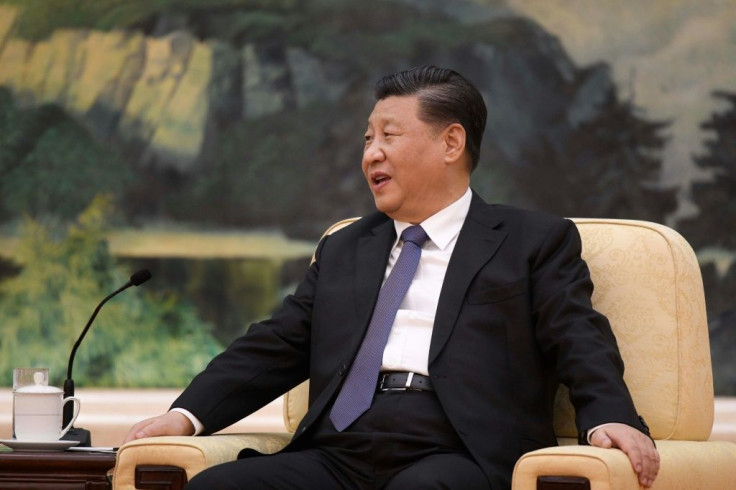China Coronavirus Outbreak Is Like 'Chernobyl', But Where Is Xi Jinping?

KEY POINTS
- The raging Covid-19 outbreak has the potential the social stability that underpins China's economic growth
- Anger against president Xi Jinping and his fellow central government leaders is raging
- Xi appeared briefly on Monday for photo ops showing him visit a hospital and talk to doctors
Furious Chinese are still blaming both local and central government leaders -- including Chinese president Xi Jinping -- for their bumbling and ineffective response to the raging coronavirus outbreak that threatens to spiral out of control despite countermeasures.
They’re still voicing outrage through social media as to why Xi refused to appear in public during January as the Covid-19 outbreak began to rage. The media has showed videos of him wearing a blue facemask at a hospital treating patients infected with Covid-19, talking to doctors and urging scientists looking to cure the disease. Xi also had his temperature checked at a community health center.
All these photo ops, however, took place in the safety of Beijing. Xi has not been seen visiting Wuhan, the epicenter of the outbreak, or Hubei Province, which remains locked-down on his orders.
Western and Chinese analysts surmise Xi's absence is part of a plan to avoid tainting him as the hated face of the outbreak. The very public reappearance of Xi Monday was followed Thursday by the very public sacking of Jiang Chaoliang, Hubei Communist Party secretary, and Ma Guoqiang, the Communist Party leader of Wuhan. More heads are expected to roll in Hubei and Wuhan as Xi's allies move to deflect the blame away from him.
Despite these moves, political analysts still refer to the Covid-19 outbreak as the worst ever faced by Xi.
Local and social media now increasingly refer to the outbreak as "China's Chernobyl." The Chernobyl nuclear accident in Ukraine in 1986 (the world's worst nuclear disaster) was aggravated by bureaucratic incompetence and mismanagement.
“This is clearly a crisis of enormous proportions,” Dali Yang, a political scientist with the University of Chicago, told South China Morning Post. “Failure … will be blamed on the system and especially on Xi, who’s staked out his personal leadership role.”
Yang is adamant the outbreak "will be a crisis of Chernobyl proportions, especially because we will have to contend with the virus for years to come." He said people that have had loved ones die from the virus will be asking questions, "as has happened before in the aftermath of a crisis.”
More ominous is the threat the outbreak poses to the social stability that forms one of the three pillars of Xi's plan to modernize China.

Zhao Suisheng, a political scientist at the University of Denver, pointed out the mounting anger among Chinese "is almost one-sided against the government. This is something I haven’t seen since 1989.”
The casualty count from Covid-19 as of 7:30 a.m. February 14, Hong Kong time, came to 65,210 confirmed cases and 1,486 deaths on the mainland. China's National Health Commission (NHC) claims 5,954 persons have recovered from the disease.
On February 13, China reported 5,090 new cases of Covid-19 infections, bringing the total number in mainland China to 63,851. NHC said 121 new deaths were reported, taking the death toll on the mainland to 1,380.
Hubei reported a further 4,823 cases. It was the 10th straight day the number of daily new confirmed cases in the country fell, but excluding Hubei, claims NHC.
© Copyright IBTimes 2024. All rights reserved.





















